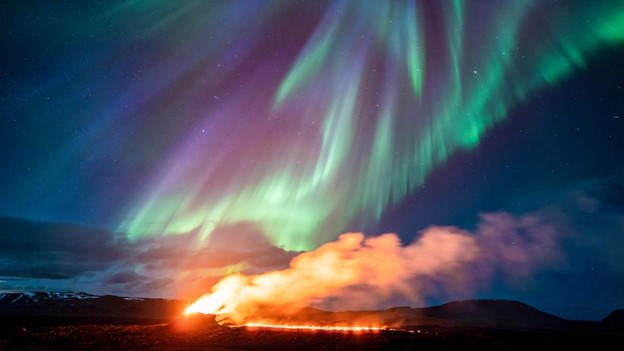By: Sammy Wang
Iceland, despite its name, has many, many volcanoes. With a count of 32 volcanoes, people are wary of them erupting. These worries shouldn’t be taken lightly, because as of now, volcanoes in Iceland are expected to erupt every year.
Before 2021, a volcano would erupt every five years in Iceland, so what is causing this change? CNN Science reasons that it is because, “the island sits on a boundary between tectonic plates.”
The major first eruption started on March 19, 2021, with the Fagradalsfjall volcano, followed by 2 more eruptions from the same volcano in the next two years. In 2023 and 2024, the Sundhnúkur volcano erupted.
These eruptions have caused danger to Iceland’s Reykjanes Peninsula. This region is home to 27,829 people, a popular tourist destination, and contains Iceland’s major international airport. Therefore, the recent eruptions are a danger to the Peninsula.
Matthew J. Roberts, the managing director of the Icelandic Meteorological Office, said. “This is perhaps the most intense period of volcanic activity affecting an urban environment at the moment.”
Jessica Johnson, an associate professor of geophysics at the University of East Anglia in the United Kingdom stresses that it is important to be prepared for an eruption anytime, especially if people don’t know when the next eruption will strike.
There are already warnings given to tourists going to those volcanoes, the same goes for citizens. It is always better to be safe than sorry.
Sources:











